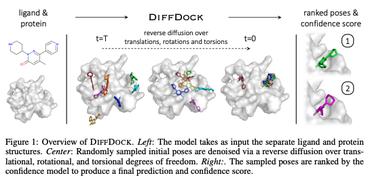Drug Repurposing Targeting COVID-19 3CL Protease using Molecular Docking and Machine Learning Regression Approach
The COVID-19 pandemic has initiated a global health emergency, with an exigent need for effective cure. Progressively, drug repurposing is emerging as a promising solution as it saves the time, cost and labor. However, the number of drug candidates that have been identified as being repurposed for the treatment of COVID-19 are still insufficient, so more effective and thorough drug repurposing strategies are required. In this study, we joint the molecular docking with machine learning regression approaches to find some prospective therapeutic candidates for COVID-19 treatment. We screened the 5903 approved drugs for their inhibition by targeting the main protease 3CL of SARS-CoV-2, which is responsible to replicate the virus. Molecular docking is used to calculate the binding affinities of these drugs to the main protease 3CL. We employed several machine learning regression approaches for QSAR modeling to find out some potential drugs with high binding affinity. Out outcomes demonstrated that the Decision Tree Regression (DTR) model with best scores of R2 and RMSE, is the most suitable model for drug repurposing. We shortlisted six favorable drugs and examined their physiochemical and pharmacokinetic properties of these top-ranked selected drugs and their best binding interaction for specific target protease 3CLpro. Our study provides an efficient framework for drug repurposing against COVID-19, and establishes the potential of combining molecular docking with machine learning regression approaches to accelerate the identification of potential therapeutic candidates. Our findings contribute to the larger goal of finding effective cures for COVID-19, which is an acute global health challenge.
PDF Abstract

